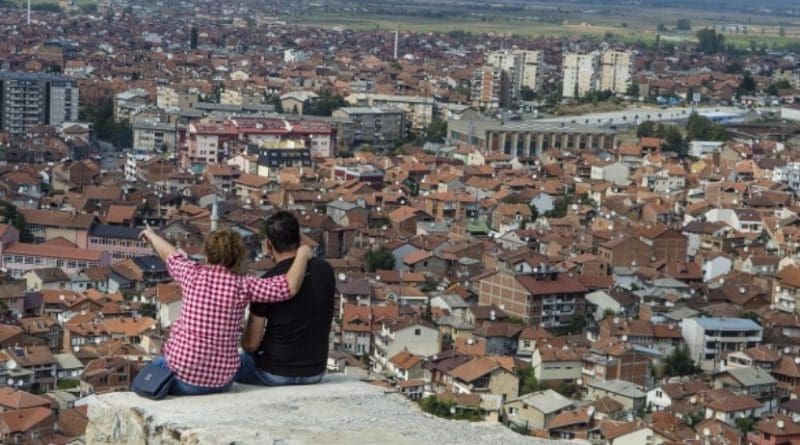Kosovo: Key Municipalities Face Runoffs In Elections
By Die Morina
Kosovo’s Central Electoral Commission is yet to announce preliminary results from local elections. However, some 17 municipalities are set to pass into runoffs.
As Kosovo waits for official results from Sunday’s local elections, some 17 municipalities already seem set for runoffs, according to preliminary data from local NGO Democracy in Action (DIA), which monitored the process.
Pristina’s residents are observing close competition between the current mayor, Shpend Ahmeti, from nationalist party Vetevendosje –which according DIA won 44.27 per cent of the vote – and Arban Abrashi the candidate from the liberal conservative party Democratic League of Kosovo, LDK, which garnered 35.7 per cent.
Other municipalities set for runoffs include Kamenica, Rahovec, Malisheva, Prizren, South Mitrovica, Ferizaj/Urosevac, Istog, Vushtrri/ Vucitrna, Gjakova/Djakovica, Gjilan, Dragash, Kacanik, Klina, Obilic, Shtime, and Suhareka/ Suva Reka.
Vetevendosje, which doubled its share of the vote in national elections this summer, is heading for runoffs in seven municipalities, while LDK, the Kosovo Democratic Party, PDK, and Alliance for the Future of Kosovo, AAK have retained some of their strongholds without the need for a second round.
Prime Minister Ramush Haradinaj congratulated “parties and especially citizens for their dignified behavior” on election day. He added that his party, AAK, won three municipalities without runoffs: Junik, Decan, and Obilic. He also said that AAK has taken the lead in Gjakova, and that the party doubled the amount of municipalities it previously held.
Based on preliminary DIA data Bekim Jashari, who is the nephew of late KLA commander Adem Jashari, won Skanderaj, running on an independent ticket. His candidacy was backed by PDK, Initiative for Kosovo, NISMA, and AAK.
As expected, Srpska Lista claimed sweeping victories in several Serb-majority municipalities, such as North Mitrovica, Leposavic, Novoberda/ Novo Brdo, Shterpca/Strpca, Zubin Potok, Gracanica, Ranillug/ Ranilug and Partesh/Partes.
Serbian President Aleksandar Vucic congratulated the Serbian List on winning local elections in all municipalities with a Serb majority in Kosovo.
“I just want to greet you all, to congratulate you on tremendous success, [and] to say that our people in Kosovo and Metohija have once again shown that they can fight for their survival, but also for their country, Serbia,” Vucic said.
While there were some arrests for activites related to voter fraud, elections were calm, on the whole, with 43.79 per cent voter turnout. Polls closed as planned at 7:00pm local time.
Police arrested two people after BIRN Kosovo reported that some citizens had been offered coffee and food in return for PDK votes in Fushe Kosove/ Kosovo Polje.
A waiter, Dardan Bylykbashi, worked at a cafe owned by a family member of Migjen Kolshi, a PDK candidate for the Fushe Kosova/ Kosovo Polje Municipal Assembly. He was filmed on three separate occasions offering coffee and food to clients and asking them to vote for “number 5” on PDK’s list of assembly members.
During the day border police at the Jarinje crossing in northern Kosovo stopped a truck in which explosives and several hand grenades were found. The truck had been attempting to enter Kosovo from Serbia.
“According to preliminary reports, a truck was stopped for suspicion of transporting explosives and several hand grenades. Three people were arrested,” said Shyqyri Syla, chief prosecutor in Mitrovica.
At the point of publication, no links between the incident and the elections had been established. Runoffs for the necessary areas are set to be held in two weeks.

